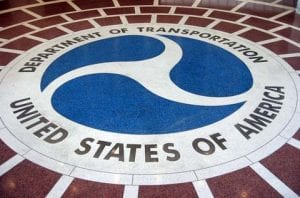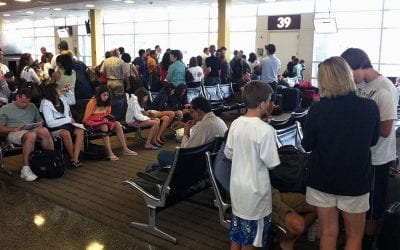We need common airline flight credit rules for airfare refunds and flight credit protection.

Consumers need common COVID flight credit rules to make using their credits easy
Travelers United is asking Congress to mandate a common system for the use of airline credits issued as refunds for airline tickets canceled or changed because of the pandemic.
- Acknowledgment that cancellations and schedule changes were at the behest of the government and not for the convenience of airline passengers
- One standard protocol for all flight credits issued by airlines
- A DOT common definition of what is considered a “significantly changed” schedule (Travelers United suggests 90-120 minutes)
- Instructions that DOT and State AGs should design an airline customer service system that will allow local AGs to assist in handling many passenger complaints that today must be adjudicated solely by DOT. The actual regulations can be subject to federal preemption. However, a system closer to home should be established to deal with customer service complaints.
To date, airlines have provided expiration-date extensions but new complexity

Plus, though the airlines have been the focus of these refund and change issues, it affects all sectors of the travel industry, including organized tours and hotel reservations.
The current system creates a classic Catch-22. Applying federal preemption to nationwide passenger service and advertising exceeds the abilities of DOT. Where are common flight credit rules?
Current state AGs already have established systems to handle consumer protections. Federal preemption can apply to creating regulations and other aviation functions that require intrastate and international law. The current system puts the passenger in an untenable situation, with only the use of the lowest levels of protection (through small claims courts) or proceeding with the federal court system. Making the existing customer service plans part of the airline contract of carriage will allow the system to operate as a straight contractual case.
Every airline has a different set of flight credit rules

- Some airlines, like Frontier, issued vouchers with a 90-day expiration date.
- Most airlines’ expiration dates were for one year based on the original purchase date, not the date of flight change.
- Yet others date credits from their addition to airline credit banks.
- Some airlines extended the expiration dates as the pandemic continued.
- Many passengers did not take cash but took airline credits. The value of their refund should be open-ended, but sometimes it expires one year from the change.
- Consumers must keep track of expiration dates – the airline will not remind you. If you miss the date, you lose your money in many cases.
- Send complaints to DOT. Send a complaint if you do not get to use your flight credit. Complain if you have problems with the telephone agent (and get their name). Complain if you have trouble getting your refund. DOT is the only cop on the beat.
Check your voucher terms.
- When is the value expiring?
- Is the voucher good for only the same flight?
- Is it good for any flight?
- If it is used for a lower-priced ticket is the extra refundable or can it be used on a future ticket?
- Can the voucher be used for basic economy airfare? Or do you have to upgrade?
- Do you have to pay fare differential?
DOT issued a helpful enforcement memorandum
Advocacy groups were successful in getting DOT to release an “Enforcement Memorandum” that said that any flights canceled by airlines prior to being canceled by passengers must be refunded by rule. However, those cancellations that were initiated by passengers first, before the airline cancellation, would only be eligible for airline flight credits.
The DOT memorandum leaves a giant question about passenger cancellations
Travelers canceled flights at the behest of the US government – the President, CDC, and others. These flight changes and cancellations were not the product of traveler convenience. The highest levels of government gave these “don’t travel” instructions.
DOT must define significantly – we suggest a 90-minute rule

The term significantly is defined by some carriers as 90 minutes, others as two hours, and differently by others. A new NPRM released recently provides airlines with three hours of delay for domestic tickets and six hours for international flights before defining the delays as significant. Hopefully, the final rule will be closer to 90 minutes.
When airlines cancel flights or change their schedules “significantly,” they must refund all airfares and fees paid.
- At the pandemic’s start, some airlines (United for sure) refused to obey the law and told passengers they could only get airline credits. This was a lie.
- DOT issued an enforcement memorandum that reminded airlines about the law. Plus, DOT instructed airlines to send notifications to all passengers who they lied to about flight credits being their only recourse with corrected information – that they could get a full cash refund. Travelers United has never seen such a letter or a blanket notification online from any airline. It will be wonderful fodder for an immediate class-action suit.
- DOT still seeks no major airline punishment for being dishonest with passengers (other than Frontier).
- Travelers United spoke with DOT and urged consequences for breaking the law. So far, we learned that DOT acted to get money back in the affected passengers’ wallets as soon as possible. DOT decided that compromise was better than penalties in this case. However, there should always be consequences for ignoring DOT regulations.
- Foreign airlines, especially Air Canada, still thumb their noses at providing refunds. They must follow the law.
 Consumer protection conclusions:
Consumer protection conclusions:
- Congress should acknowledge that passengers made cancellations and changes at the government’s behest, not for airline passengers’ convenience.
- Establish one standard protocol for all flight credits issued by airlines.
- Develop a DOT standard definition of a “significantly changed” schedule. Make it passenger friendly. Airlines create routes and timetables, not travelers.
- DOT and State AGs should design an airline customer service system that allows State AGs to assist in handling many passenger complaints that, today, DOT must adjudicate. The existing regulations can be subject to federal preemption. However, a more localized, closer-to-home system should be established to deal with customer service complaints.
READ ALSO:
Why LCCs will lead the way to airline rebirth if they are allowed
11 helpful, effective tips to prevent travel illness and recover quickly
Takeoff photo by Kyle Glenn on Unsplash

Charlie Leocha is the President of Travelers United. He has been working in Washington, DC, for the past 14 years with Congress, the Department of Transportation, and industry stakeholders on travel issues. He was the first consumer representative to the Advisory Committee for Aviation Consumer Protections appointed by the Secretary of Transportation from 2012 through 2018.




